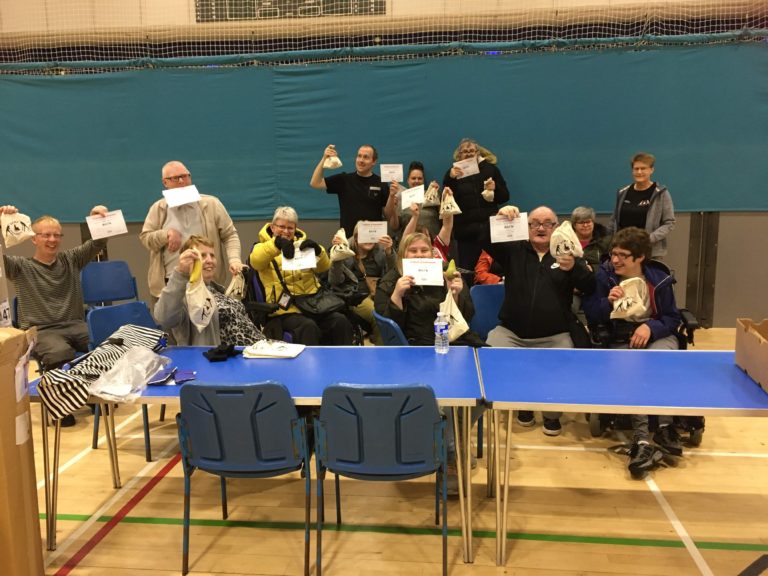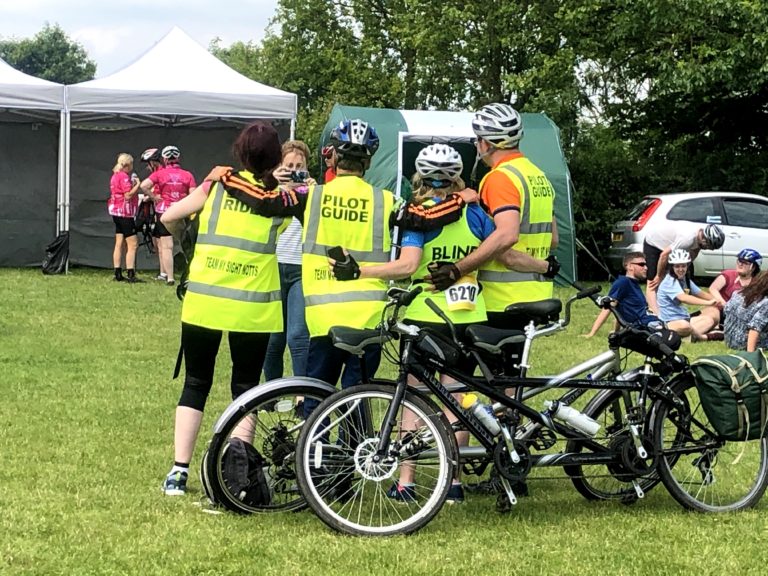At Sported, we believe that sport and physical activity has the power to change the lives of young people and should be accessible to all.
This International Day of People with Disabilities (3rd December 2021) we caught up with Stephen and Helen, two group leaders who run fantastic community sports groups, helping those with disabilities experience the benefit of sport. These groups, and many others like them in the Sported network, provide a vital lifeline for their participants, and allow young people with disabilities to learn skills that extend into their everyday life.
Based in Sheffield, D.A.W.S was formed in 2014 as a pilot project to combat the void of exercise for those with disabilities and long-term illness.
Stephen created D.A.W.S as a result of his own mobility and spinal problems, finding it difficult to get specialist help and rehabilitation after an accident which resulted in above-the-knee leg amputation. He therefore challenged himself to change the opportunities for the disabled and minority communities in Sheffield. Becoming a charity in 2017, D.A.W.S is on a mission to create the first fully inclusive gym for all disabilities and those with long-term health conditions.
They currently run a number of activities including safe zone archery, gym equipment tuition, fitness and body stretching mobility exercise classes, and weekly indoor games sessions, as well as carrying out home visits, providing exercise support for all ages and disabilities.
“Beneficiaries come from all communities especially those that are deprived by mainstream venues and exercise / sports clubs. We focus on helping all ages, integrating young with old, so everyone learns about the past and present from conversations and discussions held between participants.”

Stephen explains that one young participant, Hope, who has cerebral palsy, has been attending sessions for a number of years, and as a result, has majorly increased her independence and confidence. She is now at university and is a disability advocate ambassador, allowing her to challenge authority figures about issues that affect young disabled people.
Another participant Ashley, who has Asperger’s syndrome, was encouraged by his sister to attend the gym.
“He soon became an integral part of the gym, gaining confidence and social interaction with the public and other gym users. He went on to use local transport and gained part-time work for a local hotel chain. He recently told us he may have never got to where he is if it wasn’t for our kind understanding and support.”
However, funding is proving difficult, despite support for their work from their local council and MP. With help from Sported and their local Sported contact, they have been able to get funding to purchase a charity vehicle and are in the process of getting signage produced. This means big things for the future of their group!
Find out more about D.A.W.S on their website, Twitter or Facebook channels
Ridewise, based in Nottingham, are a charity that helps people become more active through walking and cycling, while spreading the word about the benefits for individuals and communities about green ways of travel.
Helen explains, “Cycling is an incredible way to be active, and it’s something that can be done alone or with a friend / family group.” They run activities including beginners and improvers cycle training, as well as road-based cycle confidence lessons.
Ridewise also run inclusive sessions, using adapted and tandem bikes for visually impaired riders (pictured). By building up their pool of adapted bikes, they hope to help even more people in the coming years.
As well as helping visually impaired members of their community get involved with cycling, they also help young people with other needs. Helen explains that the group have experienced an incredible response from the community, especially as more people are looking to get active outdoors, with many of their sessions over-subscribed.

One young person, who has Dyspraxia and Autism, has majorly benefitted from attending their inclusive sessions, allowing him to learn to ride a bike for himself. As his parents explained:
“It can be difficult for him to feel confident physically and these lessons became a highlight of this very unusual year. His confidence and resilience grew to the point where he was able to start riding a bike on his own (it was heart-warming to hear him telling everyone that he could now ride a bike).”
28% of groups in the Sported network run inclusive sessions for those with disabilities, providing a sense of independence, belonging and community for participants.
As well as supporting these groups through a number of ways including funding application help, marketing and governance, Sported also help groups increase their capacity to be more inclusive to young people with disabilities through our project, Project 21, currently piloting in Dundee and extending out across the UK in due course.
